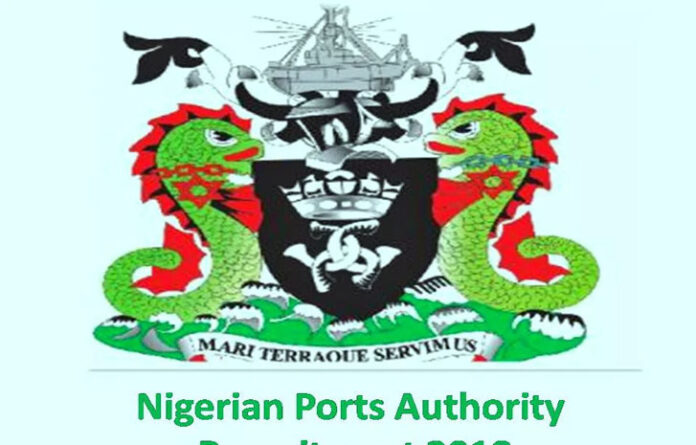The Nigerian Ports Authority (NPA), on Tuesday, inaugurated the first export processing terminal, Diamond Star Export Processing Terminal in Lagos.
The Diamond Star Export Processing Terminal, situated at Lilypond in Ijora, would ensure speedy and seamless processing of export cargoes accessing Apapa and Tin-Can Island Ports in Lagos.
The terminal would also serve as a pre-gate from where export goods would move directly into the port.
Speaking at the commissioning of the terminal, Mr Mohammed Bello-Koko, Managing Director, NPA noted that the terminal would help to reduce wastages.
He added that it would also reduce the rejection of Nigerian export goods, and the time wasted before exports gain access to the port.
According to Bello-Koko, there have been several cases of rejection of export originating from Nigeria, which could be attributed to time wastages and spending longer time at the port, but the terminal will ensure speedy processing of exports.
The NPA boss said the initiative was in line with the NPA’s commitment to the implementation of the National Action Plan on agro-export and the Federal Government’s desire to diversify the national economy from oil to non-oil export.
He noted that the NPA was also working to integrate the Central Bank of Nigeria’s NXP (Nigeria Export Proceed Form) into the electronic call-up regime.
“The need for Export Processing Terminals is underscored by the limitations of current port facilities in the Lagos area which are operating beyond their built capacity for cargo handling.
“The export terminals will serve as holding areas positioned in Lagos and Ogun States, and it will help exporters prepare their arrival at port terminals in view of the traffic management challenges that are visible in Lagos,” he said.
He pointed out that the Nigerian Export Promotion Council (NEPC) had served as the technical partner of the NPA through the journey of setting up the terminals.
Bello-Koko, however, applauded the Nigeria Customs Service (NCS), for creating an export command, noting that the authority would work with the Customs’ export command to bring up seamless modalities that would govern export trade.
“We are also working to integrate barge and train movements to complete the circle in collaboration with Nigerian Customs.
“The movement of export boxes from the Lilypond Export Terminal shall be directly through Warehouse Road to cut down on time for arrival at the port.
“Similarly, movement of export boxes to Tin-Can Island Port shall be from the DiamondStar consolidation point at Emmadunamix Terminal in Okota,” he said.
Also, Mr Ezra Yakusak, the Executive Director of the NEPC, represented by Mr Haruna Ali, said the terminal would help to create more room to increase the volume of non-oil export in Nigeria.
Mrs Adeyanju Aremu, the Assistant Comptroller General of Nigeria Customs Service (NCS), Zone A, said the service had developed Standard Operating Procedure in line with global standards to remove impediments along the export value chain.
Aremu however, urged the users of the port to take advantage of Customs’ commitment to the facilitation of legitimate trade to excel in their business and put Nigeria on the global map of top non-oil exporters.
“We are confident this terminal will serve the purpose for which it was established as the initiative is quite apt and coming at a time the country really needs a paradigm shift.
“Nigeria is no doubt blessed with enormous natural agro-based resources which if well harnessed can lead to accelerated growth in our Gross Domestic Product,” she said.
She, however, advised exporters of agro-based products to adhere to both regional and international market standards to enable them to compete favourably in the international market.
Mr Olatunji Baale, Managing Director of Diamond Star Port and Terminals Limited, said the company had the capability and competence to render prompt services to exporters and other stakeholders in the value chain.
Baale noted that there would be seamless delivery of export boxes, and the terminal was a one-stop-shop that houses all the government agencies in the export value chain.
Baale said that the terminal could handle about 50,000 boxes of export containers on a weekly basis, and would help to grow Nigeria’s export trade by reducing the trade imbalance.




